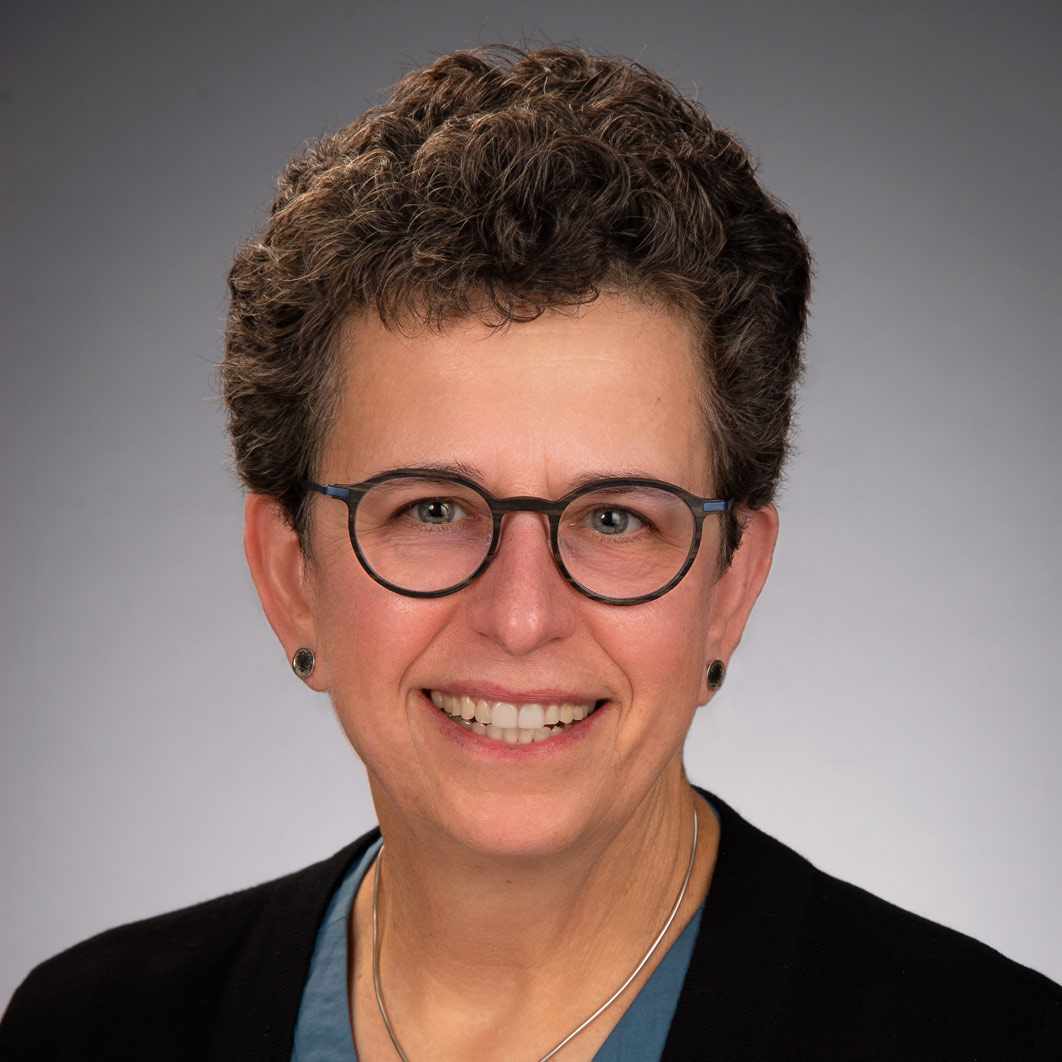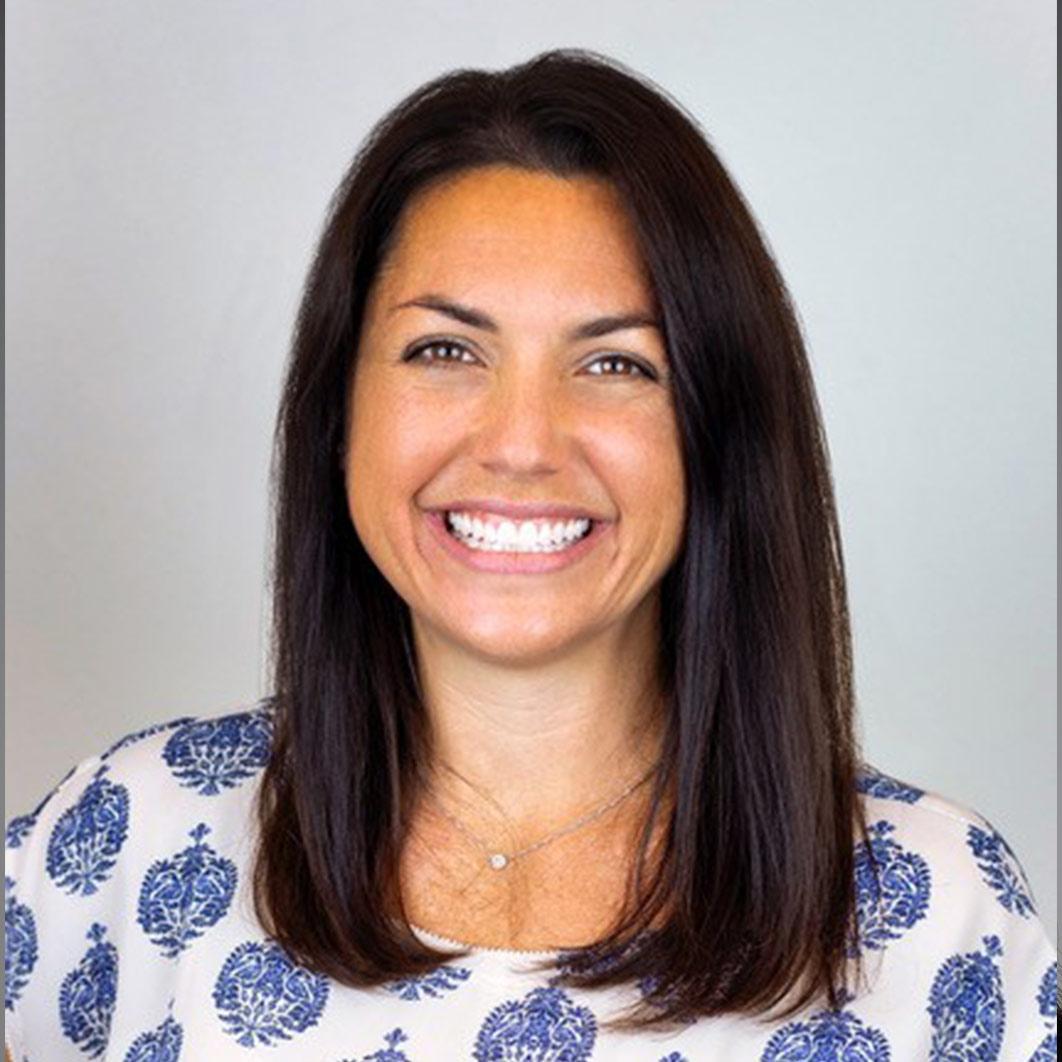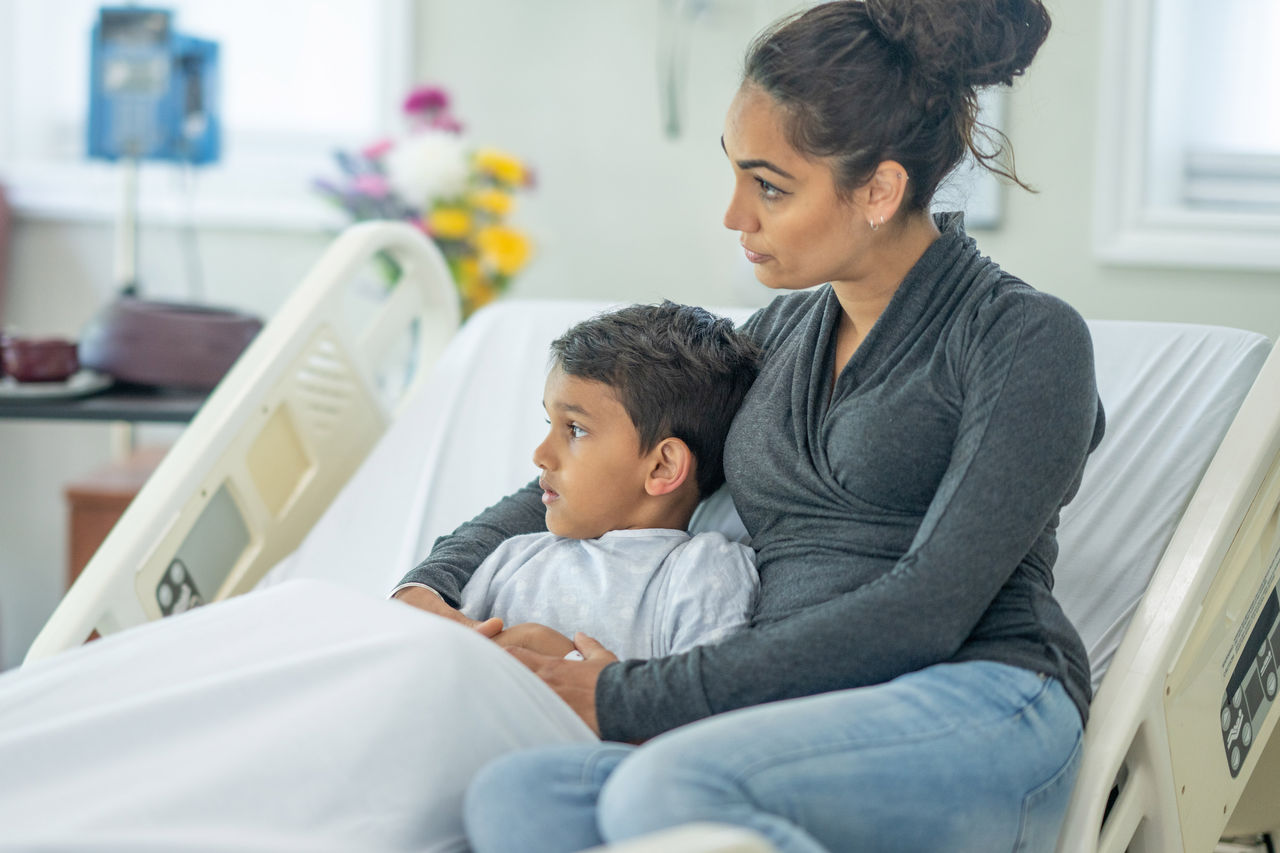Center for Healthcare Delivery Science
- About Us
- Our Research
- Research Impact
- Grants & Affiliations
Driving Pediatric Health Care Innovation
The Center for Healthcare Delivery Science is a team of scientists who partner with health care systems, families, schools, and communities. Through these collaborations we aim to explore, uncover, and transform how children and families thrive. Changing systems is a big job, and each scientist on our team is working on a different piece of the puzzle.
Our researchers from sites in Delaware and Florida use innovative and varied approaches, like family and learning health systems science, behavioral science, implementation science, informatics, health policy, and behavioral economics.
We also train future academic researchers in a variety of fields, including psychology, nursing, medicine and public health through our two-year intensive fellowship program. Together, we nurture healthy children today, and for generations to come.
Advancing Research: By the Numbers
Recognized for excellence, research at the Center for Healthcare Delivery Science translates to better health and quality of life for kids everywhere. With robust funding and a wide range of projects, we’re making progress in several areas.
$50 million +
Research funding since 2013
$23 million +
Active National Institutes of Health funding in 2023
20+
Investigators conducting research
175+
Annual publications and poster presentations
Our center has received numerous grants, including one from the National Institution of Health for $10.9 million. Our researchers have also been individually recognized with various prestigious honors and awards.
Our research has had significant impact. We lead the development of international practice guidelines, have highly cited publications, and develop innovative interventions.
We use innovative methodologies across multiple fields to optimize care delivery for children and their families.
We advance pediatric health care delivery through research, community engagement, and interdisciplinary collaborations.
Our Leadership

Anne E. Kazak, PhD, ABPP
Enterprise Director, Center for Healthcare Delivery Science
Principal Research Scientist

Melissa A. Alderfer, PhD
Center Director, Center for Healthcare Delivery Science – Delaware Valley
Principal Research Scientist

Susana R. Patton, PhD, ABPP, CDCES
Center Director, Center for Healthcare Delivery Science – Florida
Principal Research Scientist

Jessica S. Pierce, PhD
Director of Fellowship Training, Center for Healthcare Delivery Science
Senior Research Scientist
Clinical Psychologist

Dana Berger, MPH
Research Program Administrator

Alison Taggi-Pinto, MEd
Clinical Research Manager

Priscilla Jones, BS
Program Manager
Research Team
-
Erica Dolores Sood, PhD
Clinical Psychologist Associate Professor of Pediatric Psychology, Thomas Jefferson UniversityPrimary Office
Wilmington, DE -
Abbas Haider Zaidi, MD
Cardiologist Clinical Assistant Professor of Pediatrics at Sidney Kimmel Medical College, Thomas Jefferson UniversityPrimary Office
Wilmington, DE
Focus Areas

Our center concentrates research efforts within key focus areas:
Health Care Delivery
Using varied research methodologies to enhance the delivery of care for children with medical conditions and their families.
Health Outcomes
Conducting research that provides data to promote healthy outcomes and opportunities in care delivery, inclusive of populations facing multiple barriers to optimal health and addressing differences in access to care.
Psychosocial & Behavioral Factors in Pediatric Health
Leveraging expertise in factors that influence outcomes in pediatric care.
Addressing Unique Needs Across the Care Journey
Researching the integration and implementation of evidence-based care for youth, families, and health providers.
Technology-Enhanced Pediatric Health Care Interventions
Developing and evaluating technology-enhanced interventions to improve health care delivery.
Adherence to Medical Treatments
Researching methods to enhance our assessment of adherence and to deliver adaptive interventions to promote adherence.
Research Themes
We pursue projects that intersect with our main focus areas within the following themes:
- Improving pediatric care delivery
- Digital health interventions
- Implementation science
- Family/sibling adaptation
- Psychosocial risk screening
- Community and stakeholder engagement
- Transition from pediatric to adult health care
- Developing and testing interventions and care models
- Medical traumatic stress and trauma-informed care
- Risk and resilience factors in pediatric conditions
- COVID-19 impacts
Related Research & Clinical Focus
Centers at Nemours often align with research areas, affiliated labs, and clinical programs to support discovery and care systemwide.
Behavioral Health Research
RESEARCH AREA
We develop models and tools that support children’s emotional health through evidence-based care, digital interventions, and family-centered strategies.
Cancer Research
RESEARCH AREA
Investigators study childhood cancers to improve diagnosis, treatment, and survivorship through discovery science, clinical trials, and systemwide collaboration.
Cardiac Research
RESEARCH AREA
Our researchers study congenital and acquired heart conditions to advance pediatric cardiology through innovation in diagnosis, treatment, and outcomes.
Orthopedics Research
RESEARCH AREA
Our teams study bone, joint, and muscle development to improve care for children with orthopedic conditions through innovation and collaboration.
Pulmonology Research
RESEARCH AREA
Our teams explore lung development and respiratory disease to improve care for children through imaging, monitoring tools, and treatment innovation.
How We Make a Difference
Our center has made significant strides in improving care for children and families. Our leadership, innovation, and impacts are recognized.
International Practice Guidelines & Editorial Influence
- Psychosocial Standards of Care in Pediatric Cancer — Evidence-based guidelines establishing minimum standards for psychosocial care of children with cancer and their families
- Standards of Care in Pediatric Type 1 Diabetes — Comprehensive guidelines for addressing needs of children with diabetes and their families
- Pediatric Trauma Society — Collaborative network advancing care for injured children through research, education, and advocacy
- Editorials in leading medical and psychology journals
- More than 300 highly cited publications
Innovations & Resources
- Psychosocial Assessment Tool (PAT) — Validated screening tool identifying psychosocial risk in families of children with serious illness
- Surviving Cancer Competently Intervention Program (SCCIP) — Evidence-based family intervention reducing distress in childhood cancer survivors and their families
- eSCCIP — Web-based Surviving Cancer Competently Intervention Program
- Surviving Cancer CAMPetently — Camp-based intervention integrating evidence-based psychosocial care into recreational settings for families affected by childhood cancer
- REACH Center of Biomedical Research Excellence — NIH-funded center advancing research on childhood adversity and health outcomes
- National Child Traumatic Stress Center for Pediatric Stress Category II Treatment Development Center — Treatment development center creating interventions for medically-based traumatic stress in children
- Remedy to Diabetes Distress (R2D2) — Scalable screening and intervention program addressing diabetes-related distress in school-age children
- Mobile-integrated care for childhood obesity intervention
- HEARTPrep — A virtually-delivered psychosocial intervention for mothers expecting a baby with congenital heart disease
- Leaders in community-based participatory research (CBPR) approach
Policy & Funding Agencies
- Participants on NIH study sections — Expert reviewers evaluating grant proposals and shaping national research priorities
Building Research Networks
- Sibling Partnership for Advocacy, Research and Care (SPARC) — Collaborative network studying siblings of children with serious illness and developing supportive interventions
- Studies on COVID-19 impacts on pediatric populations

Publications
Nemours researchers constantly contribute to advancing scientific understanding. We share our knowledge, insights, and discoveries to encourage collaboration and inspire further research.
Grants & Affiliations
Our impact extends beyond Nemours through collaborative relationships, funded initiatives, and recognized excellence. These are the foundational aspects that help us advance pediatric health care delivery science and create meaningful improvements for children and families everywhere
Research Partnerships
Our center focuses on research partnerships to expand knowledge and leverage varied perspectives within and outside our field of study. We specifically work with these organizations to conduct research that can improve health care delivery systems and patient outcomes.
- Boston Children's Hospital — Founding PEDSnet member collaborating on pediatric health care delivery research initiatives
- Boston University — Academic partner supporting research methodology and education initiatives in health care delivery science
- Camden Coalition of Healthcare Providers — Focuses on addressing health and developing integrated care models for populations facing specific health risks
- Children's Hospital of Los Angeles — Collaborates on improving health care delivery systems and patient outcomes through evidence-based research
- Children's Hospital of Philadelphia Center for Pediatric Traumatic Stress — Partners on trauma-informed care approaches and psychosocial assessment tools for pediatric populations
- Children's Mercy Kansas City — Joint research on pediatric health care delivery optimization and quality improvement initiatives
- Child Trends — Collaborates on research related to child development, family well-being, and health-related social needs
- ChristianaCare — Regional partnership focusing on care coordination and transitions between pediatric and adult health care systems
- Cincinnati Children's Hospital Medical Center — PEDSnet member conducting collaborative research on pediatric health outcomes and healthcare delivery models
- MD Anderson Cancer Center — Partnership focused on pediatric oncology care delivery and survivorship research initiatives
- PedsNet — National pediatric learning health system with Nemours as a founding member, collaborating on multi-institutional research to improve child health outcomes
- University of Delaware — Academic partnership supporting research training, methodology development, and interdisciplinary collaboration
- University of Florida — Collaborative research on health care innovations and implementation science across pediatric populations
- University of Kansas — Partnership focused on behavioral health integration and family-centered care delivery models
- University of Virginia — Collaborates on health care quality improvement and systems-level approaches to pediatric care delivery
Major Grants

Our research is recognized and validated through generous grants. This support moves us forward and allows us to meaningfully contribute to scientific discovery. Our team has recently been awarded:
National Institute of General Medical Sciences Center of Biomedical Research Excellence (NIGMS COBRE)
Research Expanding Access to Child Health (2022-2027) | Kazak, A.E. & Alderfer, M. (MPIs) | $10,929,735
REACH Administrative Supplement: Take the Lead: Mentoring to Foster DEIA in Health Equity Research (2023-2024) | Alderfer, M (PI) | $108,097
National Institute of Diabetes and Digestive and Kidney Diseases (NIDDK)
R01 Grants
Remedy to Diabetes Distress (R2D2): A Scalable Screen to Treat Program for School-Age Families (2020-2025) | Patton, S. (PI) | $3,200,000
Home-based video telemedicine to reduce parental fear of hypoglycemia in young kids with T1D (2019-2025) | Patton, S. (PI) | $2,246,623
Coin2Dose: Behavioral economics to promote insulin bolus activity and improve HbA1c in teens (2021-2025) | Patton, S. (PI) | $900,000
K23 Grants
Uptake of Evidence-Based Behavioral Intervention for Pediatric Type 1 Diabetes (2020-2025) | Price, J. (PI) | $724,869
Adapting Single Sessions Interventions for Type 1 Diabetes (ASSIsTeD): Integrated Pediatric Care to Reduce Depression and HbA1c. (2024-2029) | Monzon, A. (PI) | $754,176
National Cancer Institute (NCI)
R01 Grant | A randomized controlled trial of eSCCIP: An eHealth psychosocial intervention for English and Spanish speaking parents of children with cancer (2022-2027) | Canter, K. (PI) | $3,745,635
National Heart, Lung and Blood Institute (NHLBI)
R01 Grant | AIM2ACT: A Mobile Health Tool to Facilitate Asthma Self-Management during Early Adolescence (2020–2025) | Fedele, D. (Site PI) | $3,379,666
R34 Grant | Optimizing a Sensor-Enabled mHealth Intervention for Adolescents with Suboptimal Asthma Control (2023-2025) | Fedele, D. (Site PI) | $727,641
National Institute of Child Health and Human Development (NICHD)
K23 Grant | Study of Healthy Adaptation and Resilience to Pain in Emerging Adulthood (SHARPE) (2022-2027) | Palit, S. (PI) | $835,000
National Institute of Nursing Research (NINR)
R01 Grant | A socio-ecological approach for improving self-management in adolescents with SCD (2023-2028) | Hildenbrand, A. (Site PI) | $190,000
Agency for Healthcare Research and Quality (AHRQ)
PedsNet K12 | Identifying and Addressing Social Risk in Congenital Heart Disease Using a Stakeholder Engaged Approach (2024-2026) | Wawrzynski, S. (PI) | $305,169
U.S. Department of Education
Institute of Education Services | Developing a Coordinated System to Identify and Support Students Experiencing Homelessness (2024-2028) | Cutuli, J.J. (PI) | $1,998,599
Private Research Foundations
American Cancer Society | Cross Cultural Psychosocial Risk Screening in Pediatric Cancer (2020-2025)
Kazak, A.E. (PI) | $1,834,913
Breakthrough T1D | Transdisciplinary Care for Young Adults with Type 1 Diabetes Transitioning to Adult Healthcare (2023-2026) | Pierce, J. (PI) | $628,819
Cystic Fibrosis Foundation | TIDES 2.0: Prevalence and Longitudinal Course of Depression, Anxiety, and Behavior Problems in Children with Cystic Fibrosis (CF) under 12 Years of Age. (2024-2028) | Fedele, D. (Site PI) | $258,822
Donaghue Foundation | Leveraging Virtual Reality to Improve Shared Decision Making for Sickle Cell Disease Treatments (2022 -2025) | Hildenbrand, A. (PI) | $311,738
William Penn Foundation | Pilot Evidence-Based Trainings in Childhood Grief and Bereavement for Child- and Family-Serving Organizations in Philadelphia (2023-2025) | Cutuli, J.J. (PI) | $109,909
Awards & Recognition
Researchers at Nemours are often recognized for their exceptional contributions to pediatric research. Our team’s passion to advance children’s health and wellbeing is celebrated in these recent awards:
Leadership, Research Excellence & Career Achievement
Anne E. Kazak PhD, ABPP
2023 Research Excellence Award, Nemours Children’s Health -Medical Staff physician recognition award
2023 R. Bob Smith III Excellence in Psychological Assessment Award, American Psychological Association
2020 Compassionate Champion Award, State of Delaware
Melissa Alderfer, PhD
2023 DE CTR-ACCEL Seema S. Sonnad Mentor-of-the-Year Award
2022 Society of Pediatric Psychology, Division 54 of the American Psychological Association Michael Roberts Mentorship Award, Society of Pediatric Psychology
2020 Lifetime Achievement Award, Society of Behavioral Medicine SIG
Susana R. Patton, PhD, ABPP, CDCES
2024 Society of Pediatric Psychology Dennis Drotar Distinguished Research Award
Erica Sood, PhD
2024 Nemours Jennifer Pendley Mentorship Award
2024 National IDeA Symposium of Biomedical Research Excellence (NISBRE) Scientific Merit Award
2021 Newburger-Bellinger Cardiac Neurodevelopmental Award
Benjamin Bear, MSW
2024 Nemours Outstanding Research Contribution Award – Professional Excellence
Dana Berger, MPH
2023 Nemours Outstanding Research Contribution Award – Professional Excellence
Early Career Development
Kimberly Canter, PhD
National Institutes of Health Loan Repayment Programs Recipient
Aimee Hildenbrand, PhD
National Institutes of Health Loan Repayment Programs Recipient
Alexandra Monzon, PhD
2024 NIH Summer Institute on Randomized Clinical Trials
National Institutes of Health Loan Repayment Programs Recipient
Shreela Palit, PhD
2022 North American Pain School
National Institutes of Health Loan Repayment Programs Recipient
Thoa-Ly Phan, MD
National Institutes of Health Loan Repayment Programs Recipient
Research Publications
Courtney Thomas, MS
2024 Society of Pediatric Psychology Diversity Poster Award
Kim Canter, PhD, Alejandra Perez Ramirez, PhD, Gaby Vega, MS, Aimee Hildenbrand, PhD, Anne E. Kazak, PhD, ABPP
2022 Clinical Practice in Pediatric Psychology Manuscript of the Year, Honorable Mention
Alexandra Monzon, PhD
2022 Student Poster Award, Society of Pediatric Psychology
Jessica S. Pierce, PhD
2021 Journal of Pediatric Psychology, Most Cited Paper Award



